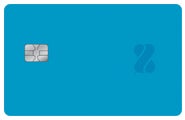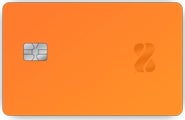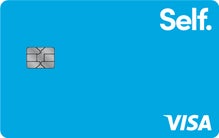The best prepaid and debit cards of 2025
Advertiser Disclosure: Bankrate’s editorial team chooses and recommends the credit cards on this page. While we may receive compensation when users apply for cards through this page, our recommendations and card ratings are produced independently without influence by advertising partnerships with issuers.
Regular APR
N/A
Annual fee
Up-to $9.95 monthly*
Why you'll like this: With no activation fee or minimum balance required, you'll face few upfront costs with this prepaid card.
Regular APR
N/A
Annual fee
Variable Monthly Fee
Why you'll like this: Applying won't hurt your credit score, making this card accessible even if you have a limited or poor credit history.
Best for building credit
Regular APR
28.24% APR Variable
Annual fee
$0 annual fee first year, $25 annual fee thereafter.
Why you'll like this: You can build your credit efficiently with this unique combo of a secured card and credit-builder loan, which can improve your credit mix.
Best for teaching kids responsible money habits
Intro offer
N/A
Rewards Rate
N/A
Annual fee
$4.99 per month
Regular APR
N/A
Why you'll like this: This card is specifically designed to help kids learn about money and financial literacy.
Best for no monthly fees
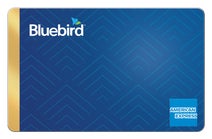
Bluebird® American Express® Reloadable Prepaid Card
Intro offer
N/A
Rewards Rate
N/A
Annual fee
N/A
Regular APR
N/A
Why you'll like this: This card doesn’t charge a monthly maintenance fee and has free reloads at Family Dollar locations.
Best for flexible card options
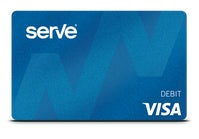
Serve® Pay As You Go Visa® Prepaid Card
Intro offer
N/A
Rewards Rate
N/A
Annual fee
N/A
Regular APR
N/A
Why you'll like this: Three different options for this card provide the flexibility to choose which card suits you best.
Best for Walmart shoppers
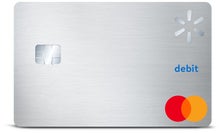
Walmart MoneyCard
Intro offer
N/A
Rewards rate
Up to 3%
Annual fee
N/A
Regular APR
N/A
Why you'll like this: Walmart shoppers can do their banking and shopping in the same place with this easy-to-load card.
Remove a card to add another to compare
Remove a card to add another to compare
Compare Bankrate's top prepaid cards
| Card Name | Bankrate's pick for | Fees | Bankrate Review Score |
|---|---|---|---|
|
No activation fee |
|
3.0 / 5 Our writers, editors and industry experts score credit cards based on a variety of factors including card features, bonus offers and independent research. Credit card issuers have no say or influence on how we rate cards.
Apply now
on Netspend's secure site
|
|
|
No credit check |
|
|
|
|
Building credit |
|
3.1 / 5 Our writers, editors and industry experts score credit cards based on a variety of factors including card features, bonus offers and independent research. Credit card issuers have no say or influence on how we rate cards.
Apply now
on Self's secure site
|
|
|
Teaching kids responsible money habits |
|
4.2 / 5 Our writers, editors and industry experts score credit cards based on a variety of factors including card features, bonus offers and independent research. Credit card issuers have no say or influence on how we rate cards.
Apply now
on Greenlight's secure site
|
|

|
No monthly fees |
|
|

|
Flexible card options |
|
|

|
Walmart shoppers |
|
|
Researching the best prepaid cards
We thoroughly rate and research the best prepaid cards based on key criteria to help you make confident decisions when choosing your next credit card. Learn more about our methodology below.
What is a prepaid card?
Prepaid debit cards are similar to debit cards, except prepaid cards aren’t connected to banking or checking accounts. Instead, funds are loaded onto the card — either online, in person at specific locations, by depositing checks or reloading with cash — then reloaded when those funds run out.
Think of them as a cross between gift cards and debit cards — they have a card number, CVV code and expiration date like debit and credit cards. They also don't usually impact your credit score, as prepaid card issuers typically don’t check your credit when you apply, and they won’t check your banking history (though this isn’t always the case).
However, you should keep in mind that most prepaid cards have fees associated with them, such as:
- Reload fees
- Monthly fees
- ATM withdrawal fees
- Inactivity fees
- Transaction fees
Pros and cons of prepaid cards
While one of the benefits of a prepaid card is its accessibility, make sure to read the fine print before you apply. Some cards have activation fees and monthly maintenance charges, which can eat into your spending.
Pros
-
No credit check needed: People with low or no credit can practice responsible credit habits without taking a hit to their credit scores.
-
Budgeting tool: Because you’re limited to spending your deposit amount, prepaid cards make it easier to stay within your budget and cut back on monthly spending.
Cons
-
More fees than debit cards: Debit cards typically charge overdraft, monthly and sometimes ATM fees. Unfortunately, prepaid cards charge those fees on top of transaction fees, reload fees, inactivity fees and more.
-
Can’t build credit: Prepaid card issuers don’t report to credit bureaus, meaning users won’t improve their credit scores over time with this card type. Secured credit cards are a better option for people with no credit or low credit to increase their scores.
Tips on choosing the best prepaid card for you
Prepaid cards are an excellent option for anyone with difficulty accessing traditional banking services, but features vary among cards. Keep in mind the following tips while shopping for a prepaid card.
- Pick up and activate your card. You can receive your prepaid card from many places, both in-person and online, and may even be able to get it the same day. Once you activate and load your card, you should be able to start using it immediately.
- Take a look at the fees. If your prepaid card charges a litany of fees, such as ATM fees, monthly service fees or reload fees, you should consider if the card is worth it. Make sure to load the proper amount to avoid paying extra reloading fees.
- Know your loading options and limits. Find out how difficult or easy it will be to reload your prepaid card and what kind of fees are attached. Some prepaid cards will allow you to reload your card with ACH transfers, but you’ll often reload manually in specific locations. Payment networks like PayPal, Visa, Mastercard and Netspend all have prepaid debit cards available. However, some networks are accepted at more merchants than others so make sure to pick one that’s accepted at stores you regularly shop at. Many prepaid cards also have loading limits, so you should familiarize yourself with those as well.
- Make sure the card offers mobile access. Mobile banking is becoming increasingly popular, and for good reason. It’s convenient, safe and can give you peace of mind. The best prepaid cards will offer an online option and have access to a mobile app.
- Consider if you’re banked or underbanked. While prepaid cards function similarly, there are significant differences between prepaid cards and debit cards, specifically where funds are stored, which can be a significant factor for those who are unbanked or underbanked. Prepaid cards provide several benefits to people who don’t have access to traditional bank accounts (unbanked people) or whose access to banking services is inconvenient or too expensive (underbanked people). If you’ve struggled to gain access to traditional banking services because of upfront costs (such as deposit minimums or initiation fees), a prepaid card might be the answer.
You can use Bankrate's Compare Credit Cards tool to help shop for the best prepaid card with as few fees as possible.
Prepaid card news & views
Rates of unbanked and underbanked people are particularly high for those in low-income households. In 2023, 4.2 percent (representing around 5.6 million households) were unbanked — meaning no one in the household had a checking or savings account at a bank account or credit union. In addition, 14.2 percent (representing around 19 million households) were considered underbanked. These are banked households that use nonbank products (like prepaid cards) to meet their core financial needs.
Many people opt to conduct financial transactions outside of traditional banks and credit unions, although people who are unbanked are much more likely to do so (33 percent compared to 12 percent of banked customers). Prepaid cards can be a great alternative for people facing financial hurdles.
Online discussion forums like Reddit can be helpful to see how other people manage their cards and mitigate risk. A post in r/Banking* offers some sound advice: “If going with a prepaid card, limit the amount loaded to what's necessary plus some buffer. Customer service is generally lacking and consumer protections more limited.” Funds can easily be locked up if issues arise and may be difficult to get back. That’s why another Redditor* recommends a different approach: “Get a regular credit card and request a low balance limit . . . set up autopay from the credit card to pay off the entire balance on the card every month ... . The [credit card] will decline if you get to [your limit] so you can't get yourself into too much trouble."
*The quotes and citations included on this page have been verified by our editorial team and are accurate as of the posting date. Outlinked content may contain views and opinions that do not reflect the views and opinions of Bankrate.
How to maximize a prepaid card
When it comes to managing your spending and avoiding debt, a prepaid card can be valuable. With the right features and responsible usage, you can maximize the benefits of a prepaid card while staying in control of your finances.
-
Set a goal
Prepaid debit cards let you use plastic when shopping online or in stores without a traditional checking account. It’s great for scenarios like a parent or guardian giving a teenager a card to make purchases with a monthly budget or if you need to cut back on spending and want to set hard limits. Understand what you’re using a prepaid card for and how it can ultimately help you reach your financial goals.
-
Research and compare cards
Each prepaid card may come with its own set of features, fees and limitations. You can find a card that aligns with your specific needs by conducting thorough research. Look for cards with low or no activation fees, reasonable transaction fees (particularly options for loading the card for free) and useful benefits tailored to your requirements.
-
Set a budget
One of the key advantages of using a prepaid card is that it allows you to set a budget and stick to it. By loading only the amount you plan to spend onto the card, you can avoid overspending and accumulating debt, so it's essential to do so with a strategic approach.
-
Strategize your reloads
Consider your spending patterns and avoid reloading large sums unnecessarily, as it might tie up your funds or expose you to additional fees. Plan your reloads effectively. Strike a balance between having enough funds and not maintaining an excessive balance on the card.
-
Be aware of drawbacks
Prepaid cards may not offer the same features like overdraft protection or consumer protections as credit or debit cards in case of fraud or unauthorized transactions. It's crucial to review the terms and conditions the card issuer provides regarding liability protection and dispute resolution processes. As a precaution, make sure to set some money aside for an emergency or rainy day fund.
Frequently asked questions about prepaid cards
How we assess the best prepaid cards
When evaluating the best prepaid cards, we take into account several factors, including how cards score in our proprietary card rating system and whether they offer features that fit the priorities of a diverse group of cardholders, from low fees to wide acceptance to earning rewards.
We analyzed the most popular prepaid card options and scored each card based on its fee structure, rewards rate and earnings, perks and more to determine whether it belonged in this month’s roundup.
Here are some of the key factors that we considered:
*Information about the Bluebird® American Express® Prepaid Debit Account, American Express Serve® Visa® Prepaid Card, Step Card, Target Circle Card Reloadable Account and Walmart MoneyCard® has been collected independently by Bankrate.com. The card details have not been reviewed or approved by the card issuers.
